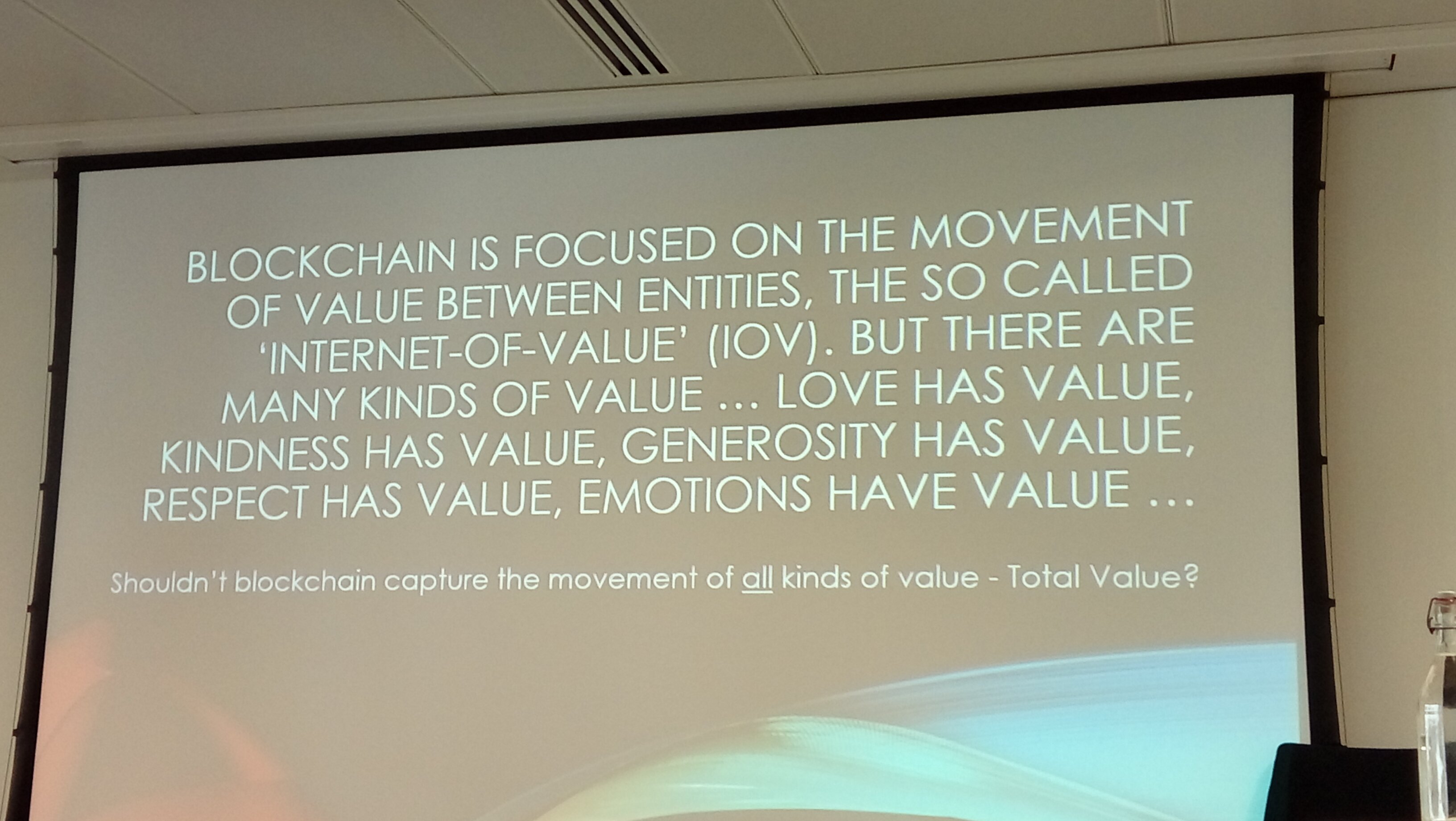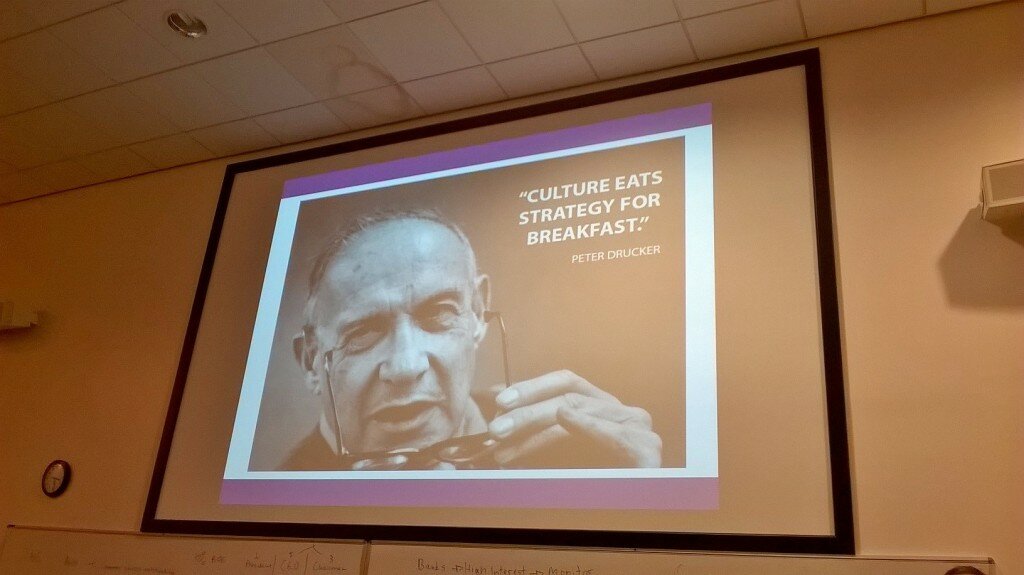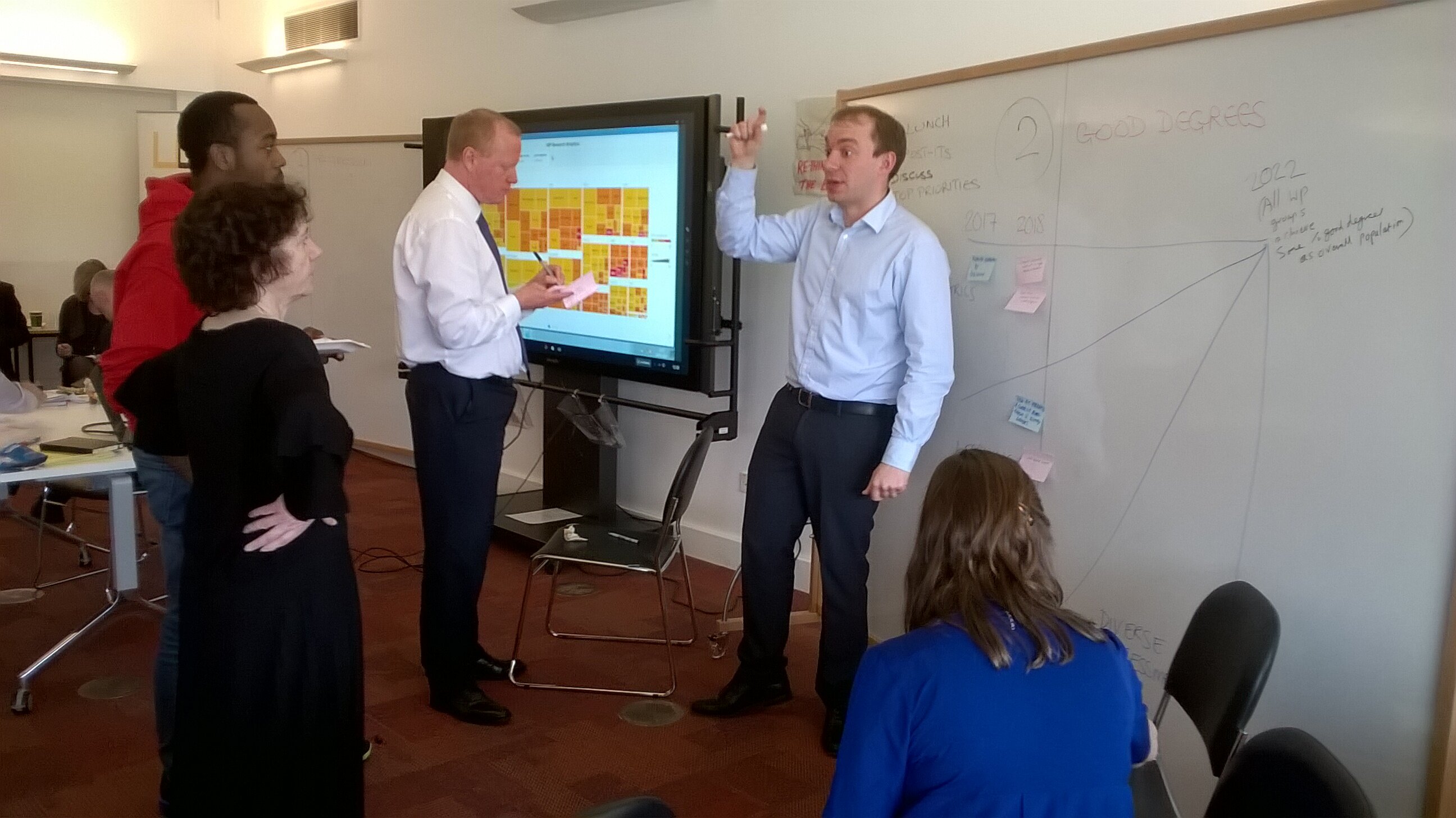What is the role for Blockchain Technologies in helping address the world’s global challenges? How can NGOs, charities and other third sector organizations exploit and capitalise on the potential of Blockchain Technology to deliver on their social and environmental agendas?
CoDE was delighted to sponsor ‘Blockchain for Good’ (B4G) recently at techUK. It was a stimulating and fast-moving afternoon of short talks that got right to the point, bringing blockchain out of the technical and financial services communities – where most of the conversation has taken place – and exploring its application to real-world challenges specifically in the areas of social need and the environment. The B4G award is supported by BA/Leverhulme Small Research Grant SG160335, with Glenn Parry at UWE acting as co-investigator for the project.
Most of our blockchain team was on hand, with hosting the conference, plus panellist Dave Birch of Consult Hyperion — Surrey Business School Visiting Professor, FinTech guru par excellence, and always a treat to hear.
The conference brought together blockchain and third sector communities to identify practical ways of aligning and capitalising on the unique characteristics of this disruptive technology, ‘for good’. Issues on the table included what types of problem are best suited to a Blockchain solution, and the roadblocks and facilitators to implementation and scaling. With all the theoretical buzz around Blockchain, it was refreshing and fascinating to learn about practice in sectors that broadly impact society.
Watch the video here
As keynote speaker of DISC Holdings pointed out, in the financial world, ‘Ledgers are not new; cryptography is not new. But the application of these through Blockchain IS new, and the “good” of financial inclusion is one goal of Blockchain for Good.’
There were some surprising and thought-provoking examples of blockchain in action in this area:
- For charities, blockchain can increase fundraising transparency, speed the verification of aid workers, and hold charities much more accountable for the impact of their work.
- For the academic community, academic qualifications on blockchain mean validation and evaluation that is reliable all over the world; QR codes on CVs provide instant verification.
- For the creative industries, blockchain represents provenance in the fashion trade, and a new way of auditing royalties in the music industry, ensuring transparency through these supply chains.
- For organisations trying to track and aid migrants and the homeless, blockchain can provide remote access to information that’s not paper-based (which otherwise might be easily lost, rendering the person unable to prove identity).
Ultimately, blockchain is making its case for traceability, trust, and security.
Panellists of CoDE and Dave Birch counselled caution, however: with Mike pointing out that ‘there is no history of responsible innovation in the fintech or technology innovation sectors’, and Dave concurring that ‘we need a trust model, with rules and responsibilities, and institutions that are accountable. Otherwise, what we get is “electronic Somalia.” ‘
Blockchain is thus also turning out to be more complicated than most of us thought. Its tremendous potential is mitigated by its steadfast resistance to being a ‘magic’ solution, and its need for regulation like so many game-changing technologies of the Digital Economy.
Innovative solutions to enduring problems are on the horizon, if we can foster greater interaction and collaboration between the blockchain community of developers and researchers, and the community that’s working in the front line of social and environmental need. B4G17 showed us what is already happening ‘for good’ as a result of this conversation. Follow us to find out where blockchain is going next.
Thanks to all the B4G contributors:
- Robert Kay, Director DISC Holdings
- Professor Olinga Ta’eed, Blockchain Alliance for Good and the Internet of Value
- Karl Hoods, CIO Save the Children
- Raphael Mazet, CEO Alice.si
- Dr Maria Grazia Vigliotti, Technical and Business Partner Gradbase
- Laura Bailey CEO & Co-Founder Zerado & Disberse
- Dr Marcus O’Dair, convenor of the Blockchain for Creative Industries research cluster at Middlesex University
- Dave Birch, Innovation Director Consult Hyperion
- Mike Brookbanks, Visiting Fellow, Centre for the Digital Economy, University of Surrey
- Rhodri Davies, Programme Leader, Giving Thought: Charities Aid Foundation
- Sue Lukes, Director MigrationWork CIC
- Alan Sherriff, Managing Director CBoxx Ltd






